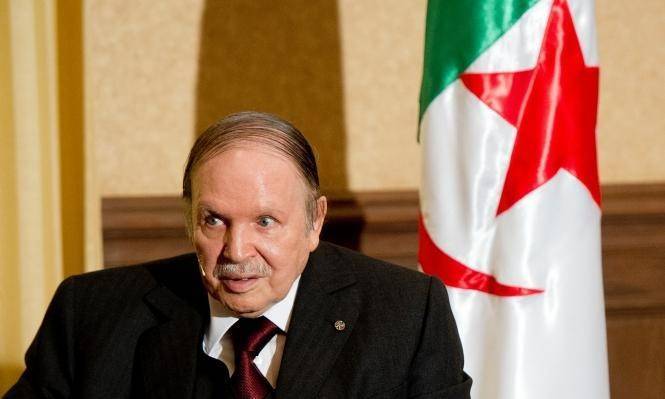Former Algerian President Abdelaziz Bouteflika passed away on Friday at the age of 84. History will remember him for successfully ending a bloody civil war upon his arrival to the presidency, but he clung to power until he was compelled to resign following a massive popular movement against him that prompted the military to request his resignation. Algerian state television broadcast a news clip before midnight on Friday into Saturday, quoting the presidency: "Former President Abdelaziz Bouteflika has passed away." Private television station "El Hayat" reported that he died "at 22:00 (21:00 GMT) in his home." Since his resignation, Bouteflika had been living away from the public eye, in isolation at his medically-equipped residence in Zeralda, west of Algiers.
He took office in 1999 while the country was torn by civil war. He was then re-elected in 2004, 2009, and 2014. In 2019, he ran for a fifth term despite being ill for six years and unable to speak. His fall became inevitable after weeks of massive protests against the fifth term. He announced his resignation after being asked to step down by the military, which had supported his rise to power.
A journalist from the French magazine "Jeune Afrique," Frédéric Aliat, who wrote a book about him, told AFP: "Throughout his life, he had two obsessions: gaining power and retaining it at any cost." Bouteflika, affectionately called "Boutef" by Algerians, played a significant role in restoring peace to Algeria after taking office following a decade-long civil war that claimed nearly 200,000 lives. In September 1999, he issued the first amnesty law for Islamist militants who had fought against government forces and were accused of widespread crimes, in exchange for them handing over their weapons. This was followed by the surrender of thousands of Islamists.
After the outbreak of what became known as the "Arab Spring" in several Arab countries, Bouteflika preempted it by lifting the state of emergency that had been enforced for 19 years and raising wages, benefiting from the country's oil revenues. However, the economic situation remained poor and unemployment was rampant, especially among youth, fueling protests against him when he decided to run for a fifth term, a move deemed by many Algerians as "disrespectful."
Since suffering a stroke in 2013 until his resignation, he was hospitalized multiple times and traveled to France for treatment on several occasions. Rumors of his death circulated many times. He submitted his candidacy for a fifth term on March 3, 2019, while undergoing medical tests in Switzerland.
His presidency was also marked by violent repression of a protest movement in the Kabylie region in 2001 and corruption scandals. Members of his family wielded significant influence during his rule. On September 25, 2019, a military court sentenced Said Bouteflika, the former president's influential brother and advisor, along with two former intelligence chiefs and a political official, to 15 years in prison on charges of "conspiracy against the authority of the state." In January 2021, Said Bouteflika and the other suspects were acquitted of the conspiracy charges but Said remained on trial for corruption. After Bouteflika's resignation, investigations into corruption led to several trials.
On April 9, 2019, Abdelkader Ben Salah was appointed as interim president of the Senate. On December 12, 2019, Abdelmadjid Tebboune, who had previously held official positions during Bouteflika's presidency, won the presidential election, which was boycotted by the opposition and marked by a high abstention rate (over 60%). The popular movement rejected the new president, considering him part of Bouteflika's regime, and decided to continue protesting until gatherings were banned due to the spread of the coronavirus.
In the last two years, security forces have prevented any march in the capital and other cities, while a wave of arrests has been recorded across the country. The Algerian League for the Defense of Human Rights states that there are nearly two hundred prisoners related to the protests and personal freedoms in Algeria.




